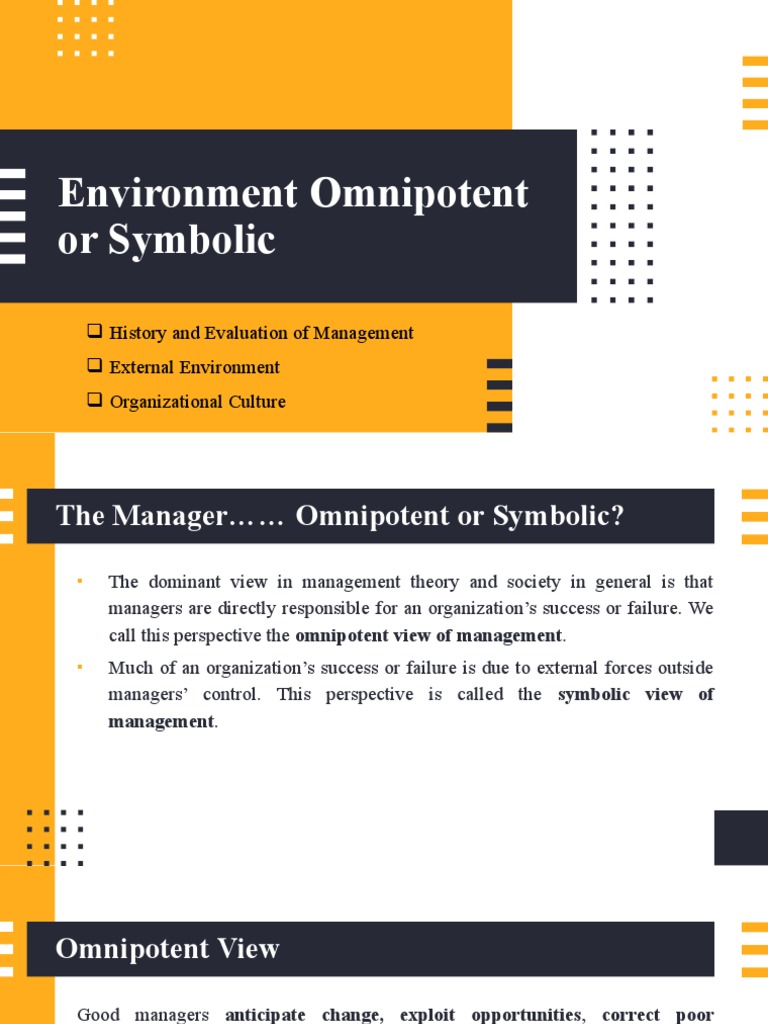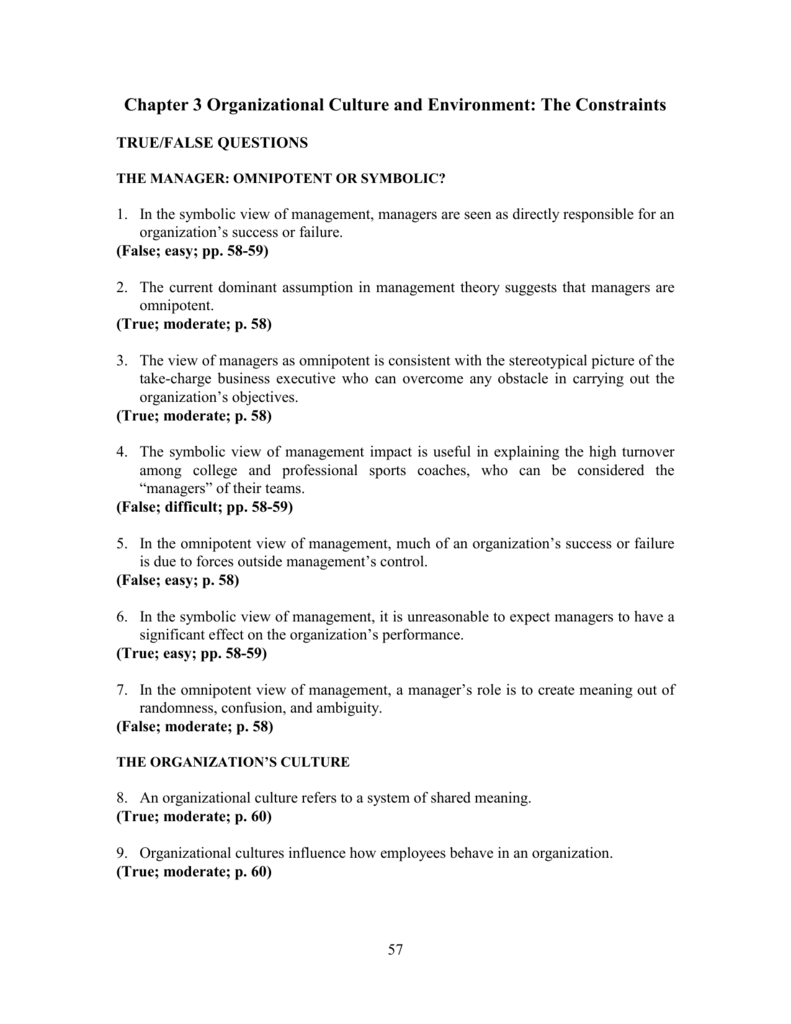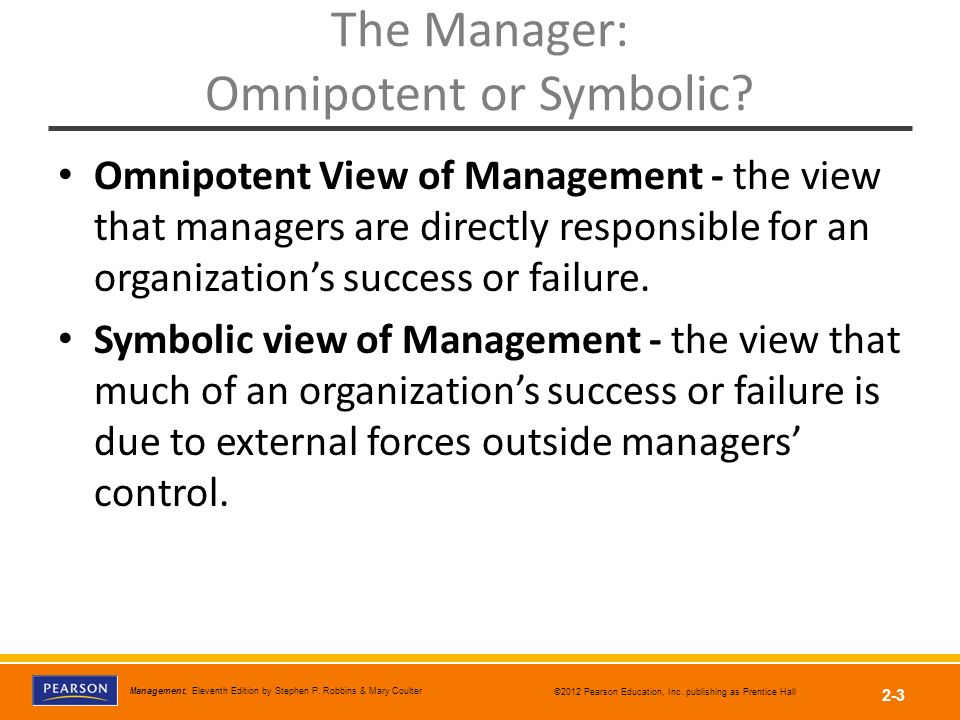Management theory is the body of knowledge and practices that help organizations achieve their goals effectively and efficiently. It encompasses a wide range of ideas and approaches, from traditional top-down models of management to more modern, participatory approaches that prioritize employee empowerment and collaboration.
One view of management theory is the idea that managers are omnipotent, or all-powerful, figures within an organization. This perspective is often associated with traditional models of management, which tend to emphasize the importance of strong, decisive leadership and a clear chain of command. According to this view, managers hold ultimate authority within an organization and are responsible for making all of the important decisions that shape its direction and strategy.
There are several arguments in favor of the omnipotent view of management theory. First, it can be argued that this approach allows for clear decision-making and a clear sense of accountability within an organization. When managers have the final say on important matters, there is less room for ambiguity and confusion about who is responsible for what. This can be especially important in situations where time is of the essence and quick, decisive action is necessary.
Another argument in favor of the omnipotent view of management theory is that it allows managers to exert control over their subordinates and ensure that they are following company policies and procedures. In this view, the role of the manager is to provide guidance and direction to employees, and to hold them accountable for their actions. This can be particularly important in complex organizations, where it may be difficult for employees to understand exactly what is expected of them and how they should go about achieving their goals.
However, there are also several criticisms of the omnipotent view of management theory. One concern is that this approach can lead to a lack of creativity and innovation within an organization. When managers hold all of the power and decision-making authority, it may be difficult for employees to offer new ideas and suggestions, as they may feel that their input will not be taken seriously. This can stifle creativity and prevent organizations from adapting to changing circumstances and taking advantage of new opportunities.
Additionally, the omnipotent view of management theory can create an unhealthy power dynamic within an organization. When managers hold all of the power, employees may feel like they have little say in how things are done, which can lead to a lack of engagement and motivation. This can ultimately have negative consequences for organizational performance, as disengaged employees are less likely to go above and beyond in their work.
In conclusion, the omnipotent view of management theory has its strengths and weaknesses. While it can provide clear decision-making and accountability, it can also stifle creativity and lead to an unhealthy power dynamic within an organization. Ultimately, the best approach to management may be one that strikes a balance between top-down decision-making and employee empowerment and collaboration.





